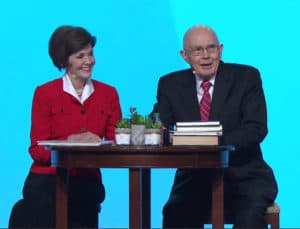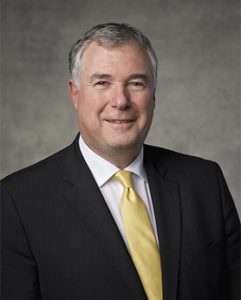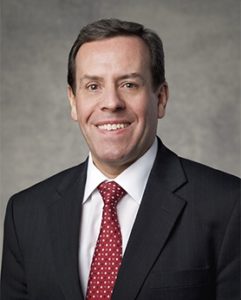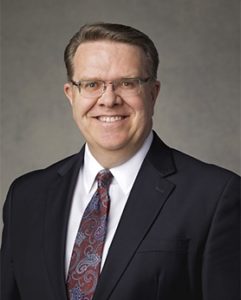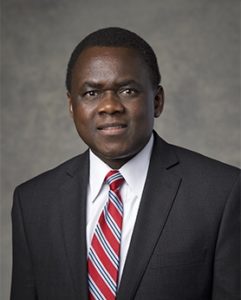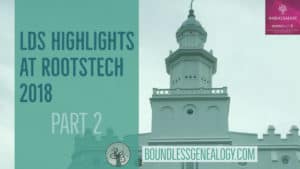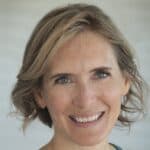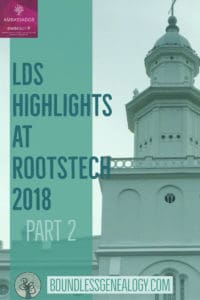 For Mormons, or members of the Church of Jesus Christ of Latter-day Saints, a passion for genealogy goes beyond a desire to learn where we came from. Finding our ancestors is an important part of our doctrine… we believe that we must all be linked through the generations from us back to Adam and that the family unit is the basic unit of God’s kingdom. Learn more about these beliefs here. During the RootsTech conference, several leaders from the Church spoke or gave interviews. Here are some important take-aways from their words.
For Mormons, or members of the Church of Jesus Christ of Latter-day Saints, a passion for genealogy goes beyond a desire to learn where we came from. Finding our ancestors is an important part of our doctrine… we believe that we must all be linked through the generations from us back to Adam and that the family unit is the basic unit of God’s kingdom. Learn more about these beliefs here. During the RootsTech conference, several leaders from the Church spoke or gave interviews. Here are some important take-aways from their words.
From Saturday Discovery Day keynote with President and Sister Oaks:
From media interviews with members of the Quorum of the Seventy who have family history assignments over different parts of the world:
Elder Erich W. Kopischke
- Europe is an important homeland for a large portion of the population of the world. Because of this access to records from this region is especially important.
- 50 million new records have been captured from Italy, but they are not yet indexed.
- FamilySearch has received a big record acquisition in Spain, but the records need to processed through to an indexed state so they are accessible for those searching for their family.
- For records formed behind iron curtain, FamilySearch is close to a breakthrough with first contract in Romania to preserve and index records there.
- FamilySearch International has spend years building relationships with some of these archives to get permission to help preserve the records.
- “The Lord is opening doors and doors and doors,” and we have the opportunity to acquire records faster than we have teams and equipment to send in to capture it. Then we need to make sure those records are indexed. OCR technology needs to improve to speed this process with 80-90% accuracy and then humans can fill the rest of the percent.
- “We can never forget the spiritual aspect of the work. There is always going to be revelation involved, and even for your kids in the future, that is how it is going to be, and I think we need to address that.”
- Make this temple and family history work into a special family event. Involve everyone from youth to adult family members in completing the temple ordinances. We don’t think like this, we are still chasing names. It would connect us differently. Get the race & competition out of this work. Have a meaningful family gathering and discovering experience.
Elder Eduardo Gavarett
- 200 million names are now available for Mexican genealogy in conjunction with the LDS Church and National Archives of Mexico and Ancestry.com.
- Both North and South America have European roots. His own ancestors arrived from France to Uruguay in 1856.
- People will discover deep connections around the world to other parts of the world as they learn their ancestors have migrated.
- There is always a positive effect of record acquisition in one part of the world on other parts.
- “We build a bridge between this side and the other side of the veil. But when we start to collect stories, and put together memories and build all these relations, this structure of the bridge goes to a freeway, connecting our ancestors and our children and grandchildren, and that is the beauty of this work.”
- It is a change of the way we think about celebrating [family history work]. We want to bring our family with us to the temple, thinking about and serving our ancestors.
- Motivate and invite others to participate.
- Invite youth to expand past indexing to researching and finding records.
Elder Scott D. Whiting
- In Asia and the Philippines it is different, it is ancient cultures, they have a family book going back 15 or 20 generations.
- In China during the cultural revolution, a lot of the records were destroyed by the government, but many people also hid those records. Now the government is interested in preserving those records.
- The Church is working to develop a better discovery experience for Asian visitors to Temple Square.
- It starts with parents and grandparents, if they are talking about it the children will become interested in it. That is not something we feel comfortable delegating to the Church. We feel that is a parental responsibility.
- The discovery experience is so important for them. Try to have them with your kids and grandkids.
- We need to move away from the administrative side of genealogy and focus on the discovery side of family history. Queue up ahead of time just a little bit so they can have a discovery experience.
- Temple and family history consultants can help more with the discovery side in homes that aren’t fully engaged in the work yet.





